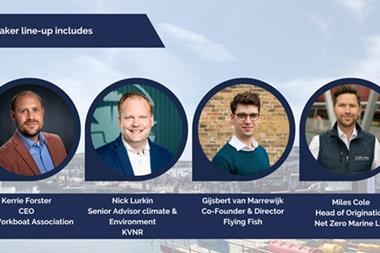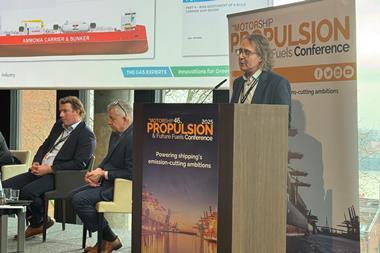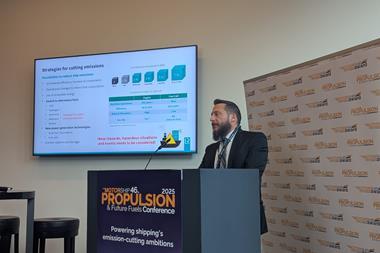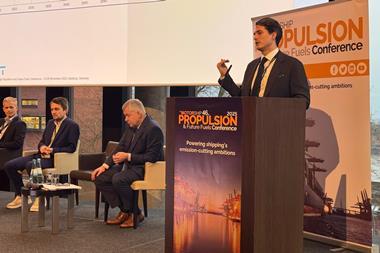The shipping industry’s push for sustainability was a central theme at this year’s Propulsion and Future Fuels, where experts emphasised retrofitting as a vital strategy.
Representatives from Hapag-Lloyd and Accelleron discussed innovations and challenges in making fleets more environmentally friendly while maintaining operational efficiency.
Wolfram Guntermann, director of regulatory affairs at Hapag-Lloyd, shared insights from the company’s extensive fleet decarbonization strategy. With over 41 years of experience, Guntermann highlighted initiatives like upgrading propellers and hull modifications to improve hydrodynamics. “Replacing propellers is a key step in our fleet upgrade program,” he noted, explaining that these changes can reduce fuel consumption by 5-8%, a crucial improvement as vessels operate at slower speeds.
The company is also investing in dual-fuel vessels capable of using greener fuels like methanol and ammonia. Guntermann described the recent christening of a dual-fuel container ship and plans for a fleet of ammonia-ready vessels. However, he stressed that retrofitting older ships remains vital, as not all vessels can be replaced immediately.
Hapag-Lloyd’s experience with retrofitting the Brussels Express underscored the challenges involved. The process, extended by pandemic-related delays, revealed the logistical complexities and high costs. “It’s not pocket change,” Guntermann admitted, but the lessons learned have informed subsequent projects.
Matthias Reichmann, product manager at Accelleron, introduced Engine Part Load Optimisation (EPLO) for two-stroke engines, a simpler, cost-effective retrofitting option. “The key takeaway is a 3% reduction in fuel consumption and greenhouse gas emissions,” Reichmann stated, emphasising EPLO’s potential for immediate gains.
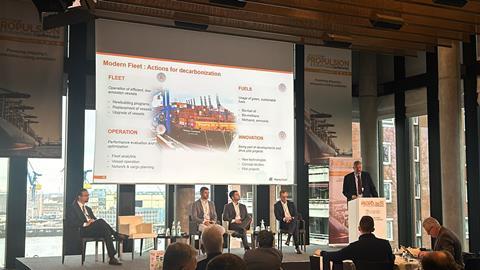
The system adapts turbochargers to optimize performance at reduced speeds, aligning with modern operational profiles. Reichmann described it as “a plug-and-play installation,” leveraging parts replacement during routine maintenance to minimise disruptions. He also highlighted EPLO’s competitive payback time, typically under three years.
Guntermann addressed another pressing issue: end-of-life vessel recycling. He criticised legal uncertainties arising from conflicting frameworks like the Basel and Hong Kong Conventions, which complicate recycling practices. Hapag-Lloyd adheres strictly to the EU Ship Recycling Regulation, working with certified yards in Turkey. Guntermann called for international cooperation, noting an impending surge in vessel retirements. “We estimate 15,000 ships will need recycling in the coming years, and the current infrastructure is insufficient.”
Both speakers underscored the need for industry collaboration. Reichmann noted how EPLO complements other measures like propeller upgrades, while Guntermann emphasised using a mix of retrofitting, new builds, and operational changes to reduce emissions.
The conference highlighted the transformative potential of retrofitting in decarbonising shipping but also underscored the financial, technical, and regulatory challenges involved. As stakeholders innovate and collaborate, these solutions will play a crucial role in achieving the industry’s net-zero goals.

